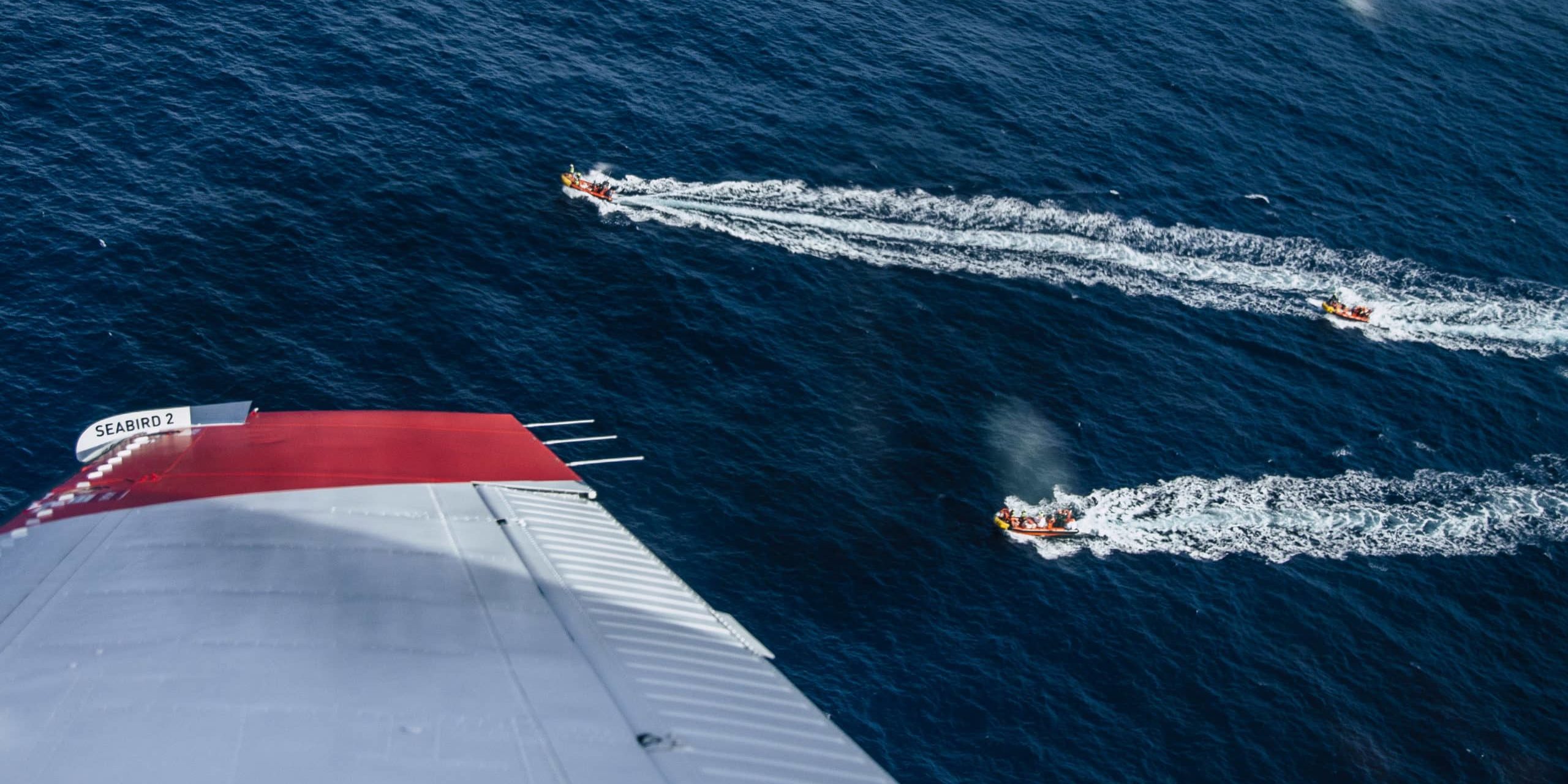Jakob is Tactical Coordinator for our air reconnaissance mission Airborne. We spoke to him about the current situation in the Mediterranean and a particularly violent incident on March 25th.
You spent the last few weeks on Lampedusa. From there, you left almost daily by plane to the area of operation. What is the situation like on the ground?
The last few weeks have been very busy in the Mediterranean. In the last four weeks alone, we have discovered more than 50 sea emergencies during our reconnaissance flights.
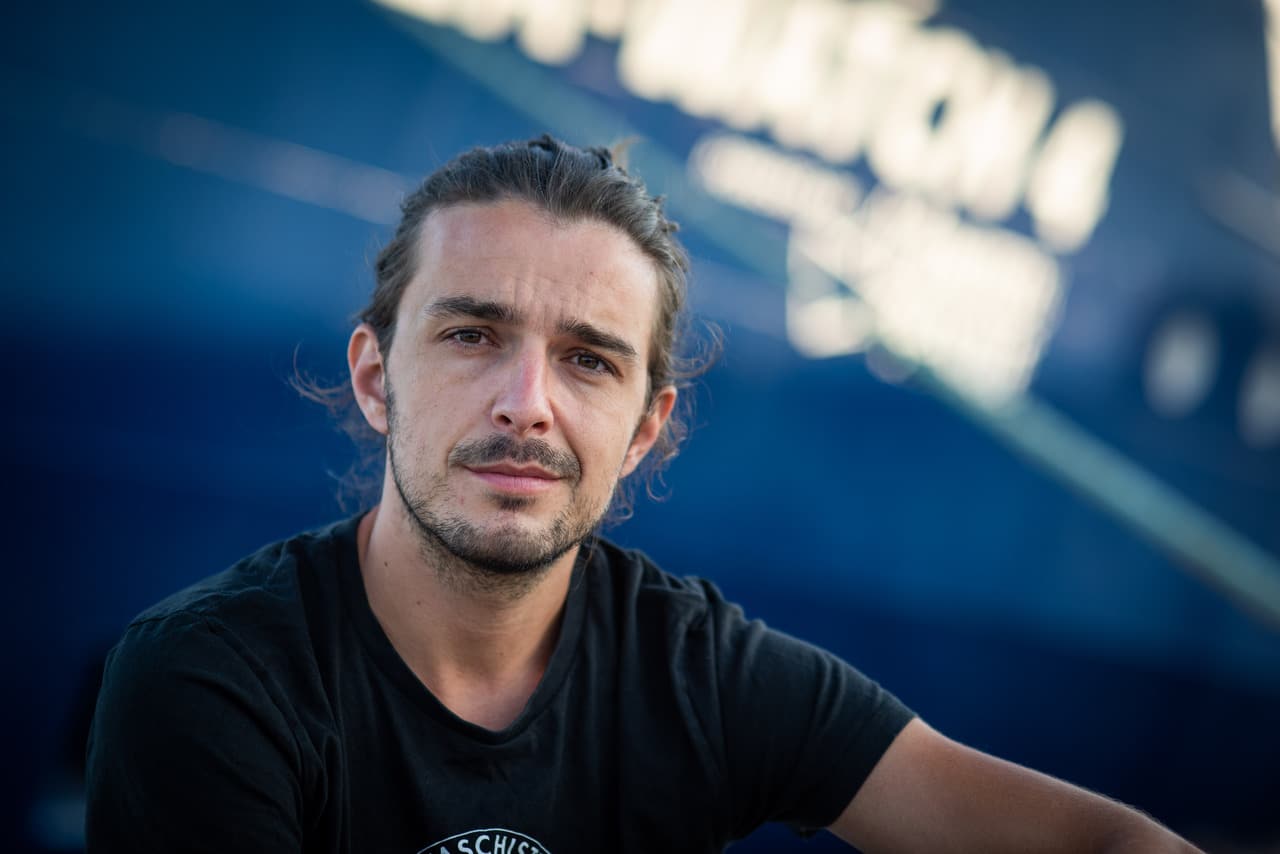
Often our distress calls to the competent authorities went unanswered. 518 people have drowned or gone missing in the central Mediterranean since the beginning of the year – including at least 46 children.
A particularly violent incident occurred on 25 March. You had to witness from the air how a ship of the so-called Libyan coast guard threatened an NGO ship and fired shots. What exactly happened there?
It started when we had an overcrowded rubber dinghy in sight from the air. Before that, the civilian emergency initiative Watch the Med-Alarm Phone informed us about the maritime emergency. When we arrived on the scene, the patrol boat “Zawiyah” of the so-called Libyan Coast Guard and the rescue ship Ocean Viking of the civilian sea rescue organisation “SOS Mediterranée” were only a few miles away. Both the Ocean Viking and we have tried several times to contact the patrol boat of the so-called coast guard in order to coordinate the rescue. After all, that is how it is legally intended: In the event of an emergency at sea, a rescue operation is to be initiated immediately.
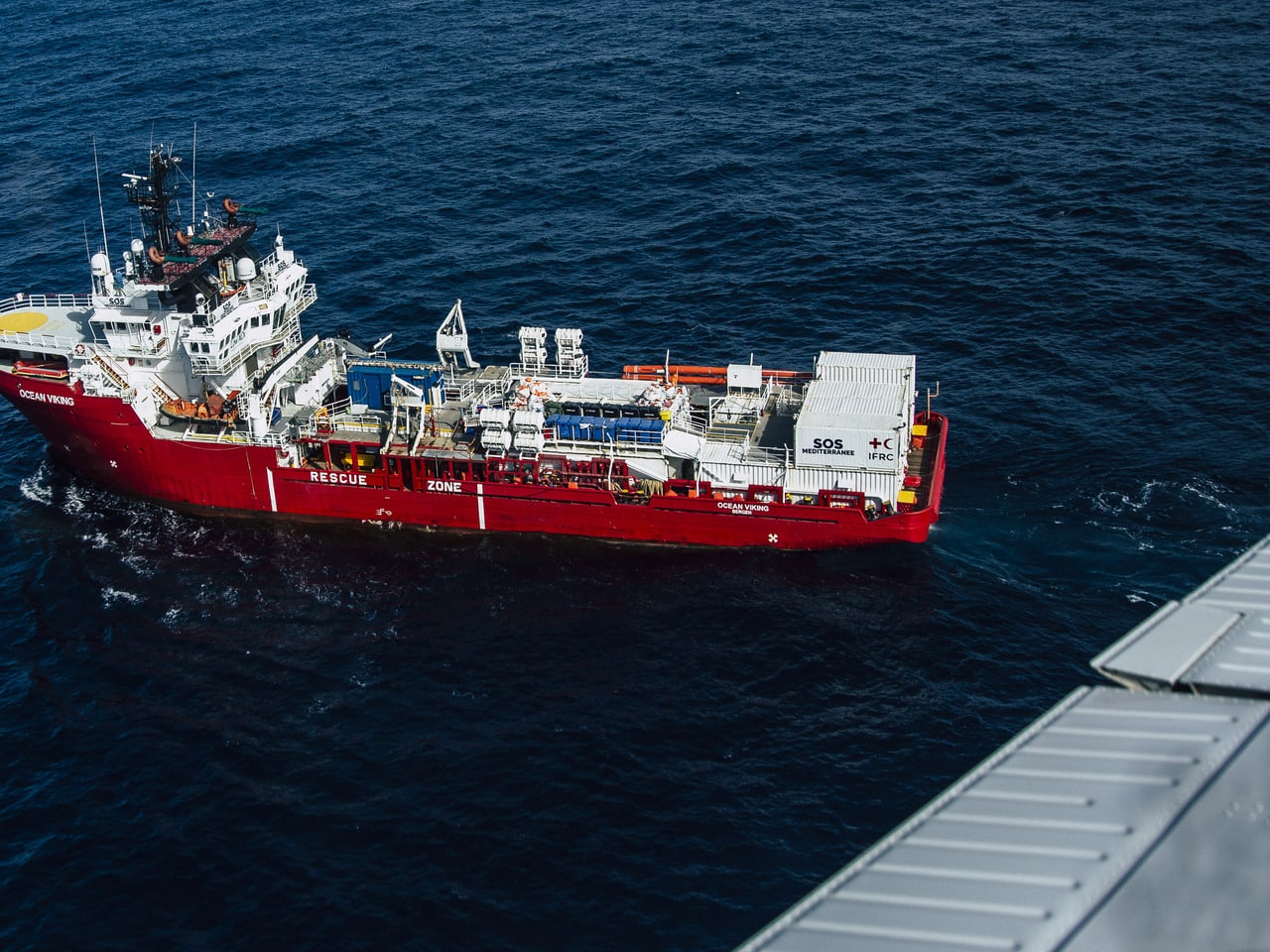
However, the so-called Libyan coast guard did not respond via radio, but instead with brute force: they fired shots several times and initiated dangerous manoeuvres. In order not to endanger its own ship’s safety, the Ocean Viking – an operational sea rescue ship! – had to leave the scene. The people on the dinghy, meanwhile, were picked up by the coast guard and taken back to Libya. Push-backs like this – illegal repatriations of people on the run – happen almost daily in the Mediterranean. Last year, over 56,000 people were illegally taken back to North Africa. This practice is deeply illegal and deliberately endangers human lives! Let’s also not forget that the so-called Libyan coast guard is financed by the EU – meaning that these heinous acts are done in the name of us Europeans!
Even for those who manage to flee across the Mediterranean, the ordeal is often not over. In response to the many arrivals in the south of Italy, the Italian government declared a state of emergency last week. What do you say to that?
A state of emergency is usually declared in the wake of natural disasters when rapid intervention is required. Among other things, measures can then be adopted by decree without having to go through the lengthy parliamentary process. This would also answer the question of how the current Italian government perceives the issue of migration and how it should be controlled.
But the humanitarian crisis in the Mediterranean is not a natural disaster, but a political, man-made disaster. On the one hand, the declaration of a state of emergency is a clear warning and call for help to the EU. But let’s not fool ourselves: The state of emergency will undoubtedly also legitimise further repressive steps by the fascist government: Faster deportations, collective expulsions, the dismantling of the right to asylum, and repression against civilian sea rescuers.
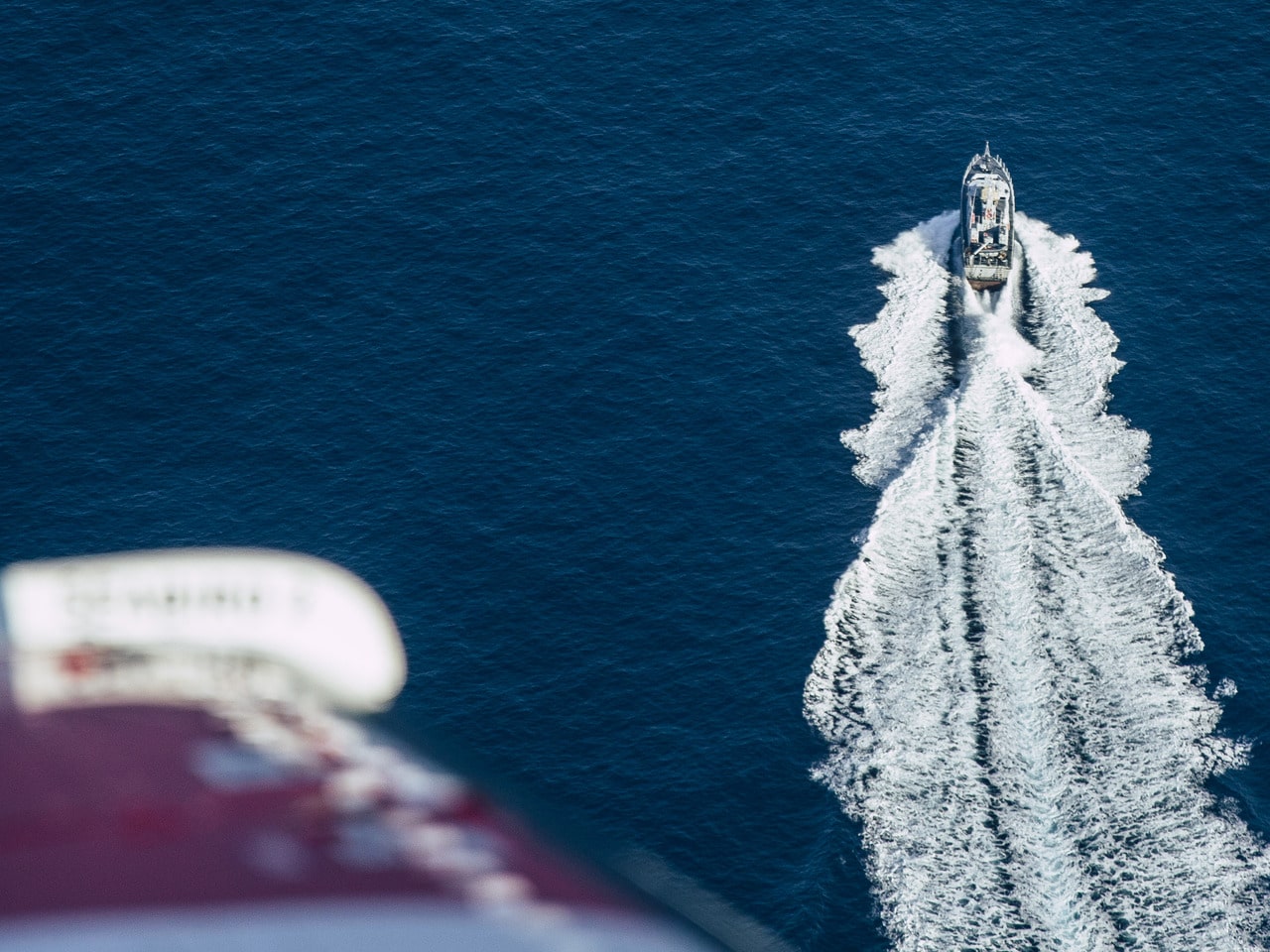
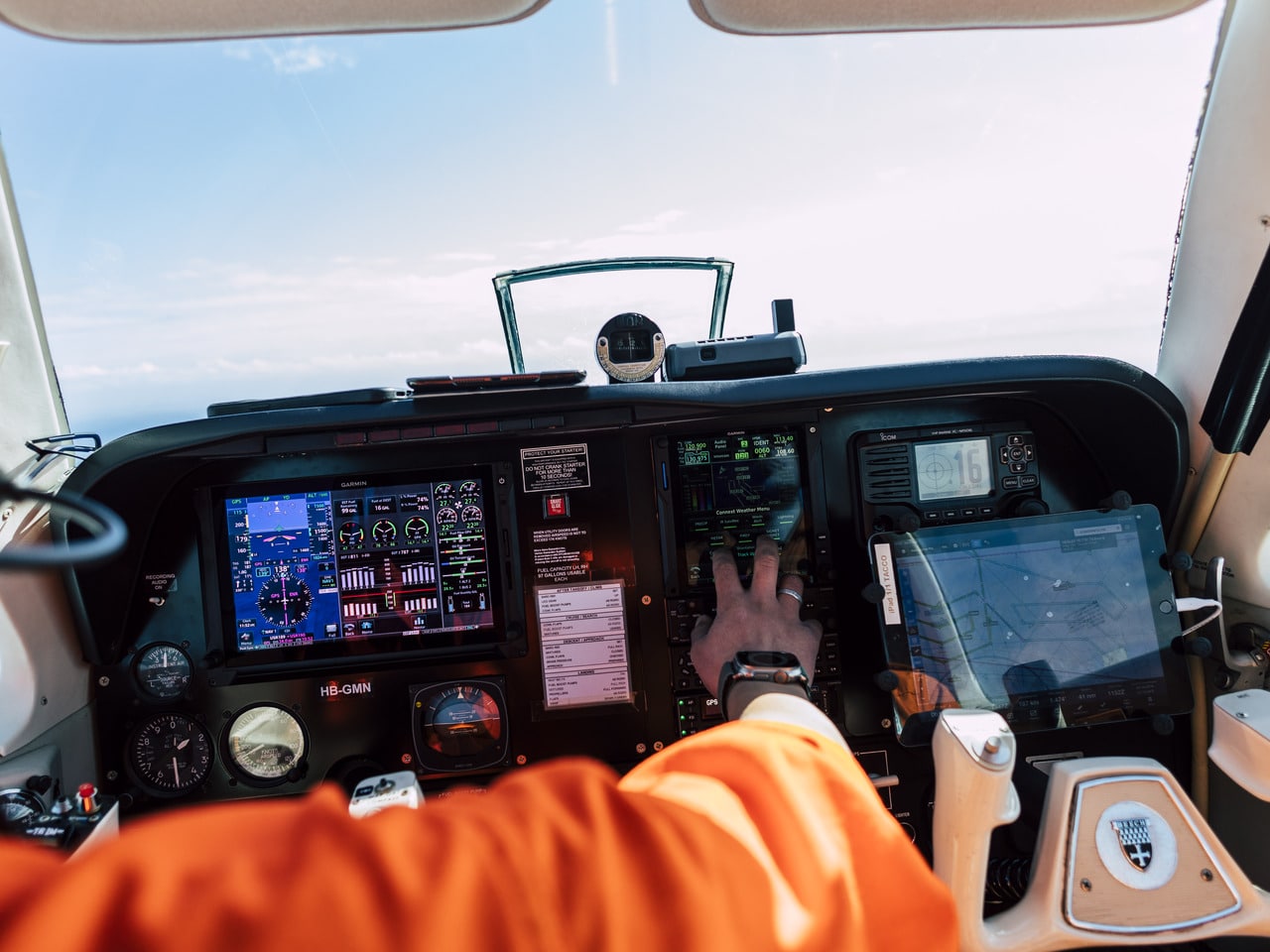
You are flying from Lampedusa. The camp on the island has been overcrowded for months. Over the Easter weekend alone, more than 2000 people arrived on Lampedusa. What can you tell us from your experience about the situation on the ground?
We ourselves do not have access to the initial reception centre. It is located in the middle of the island in a kind of gorge – well shielded so that the holiday scenery is not affected. People who arrive in Lampedusa without a European passport are immediately locked up in the camp upon arrival. Present as ever, moreover, is the militarisation of the island. This is especially evident when a large number of boats arrive.
Currently, the island seems to be preparing for the tourist season: Dozens of boats in which people have arrived on the island are lying on the beaches. Between them, life jackets and belongings left behind. These are now being cleared away. Bars and restaurants are opening up to provide an inviting holiday setting for tourists, just like everywhere else on the northern shores of the Mediterranean. It is a bizarre place.
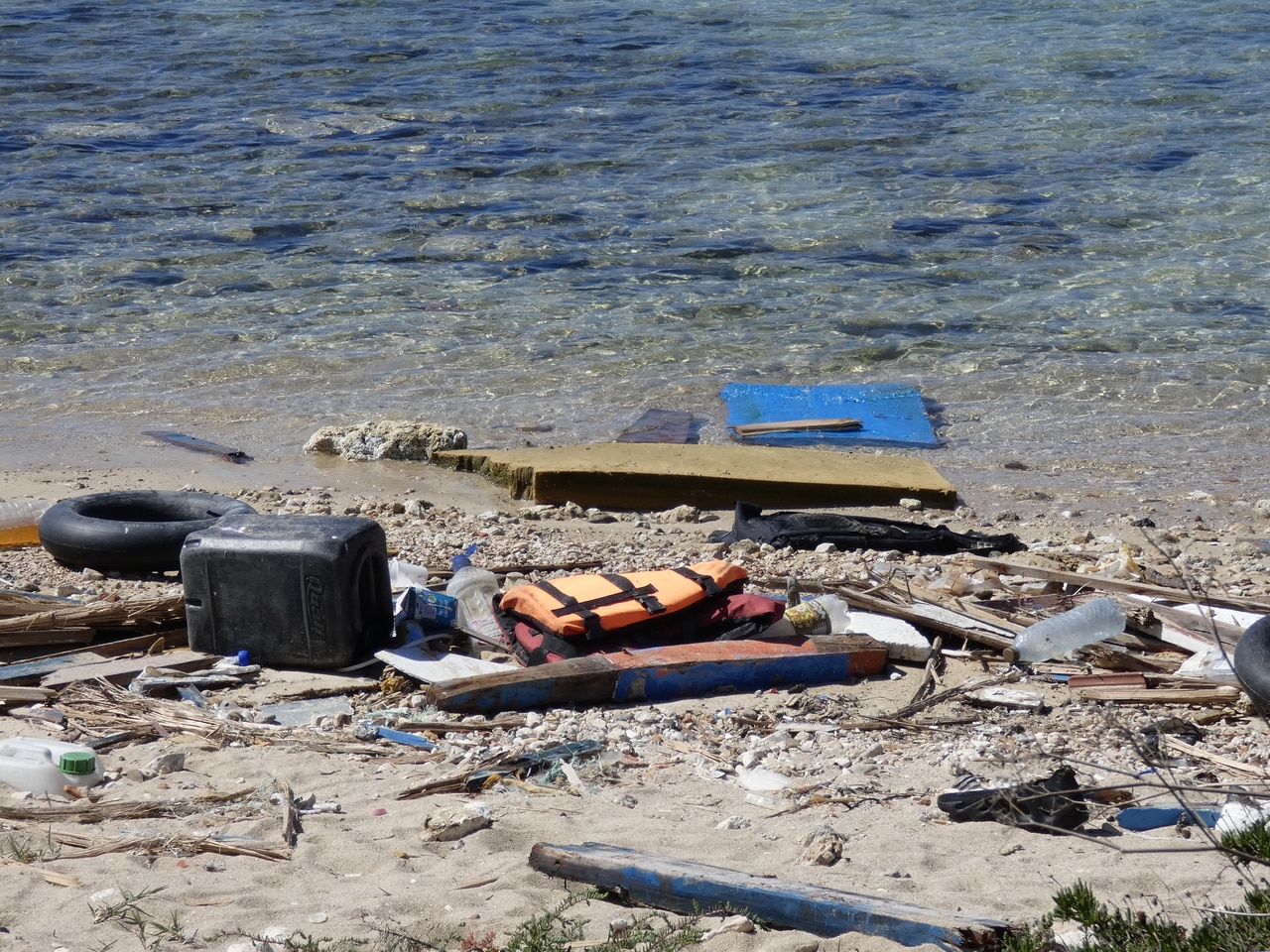
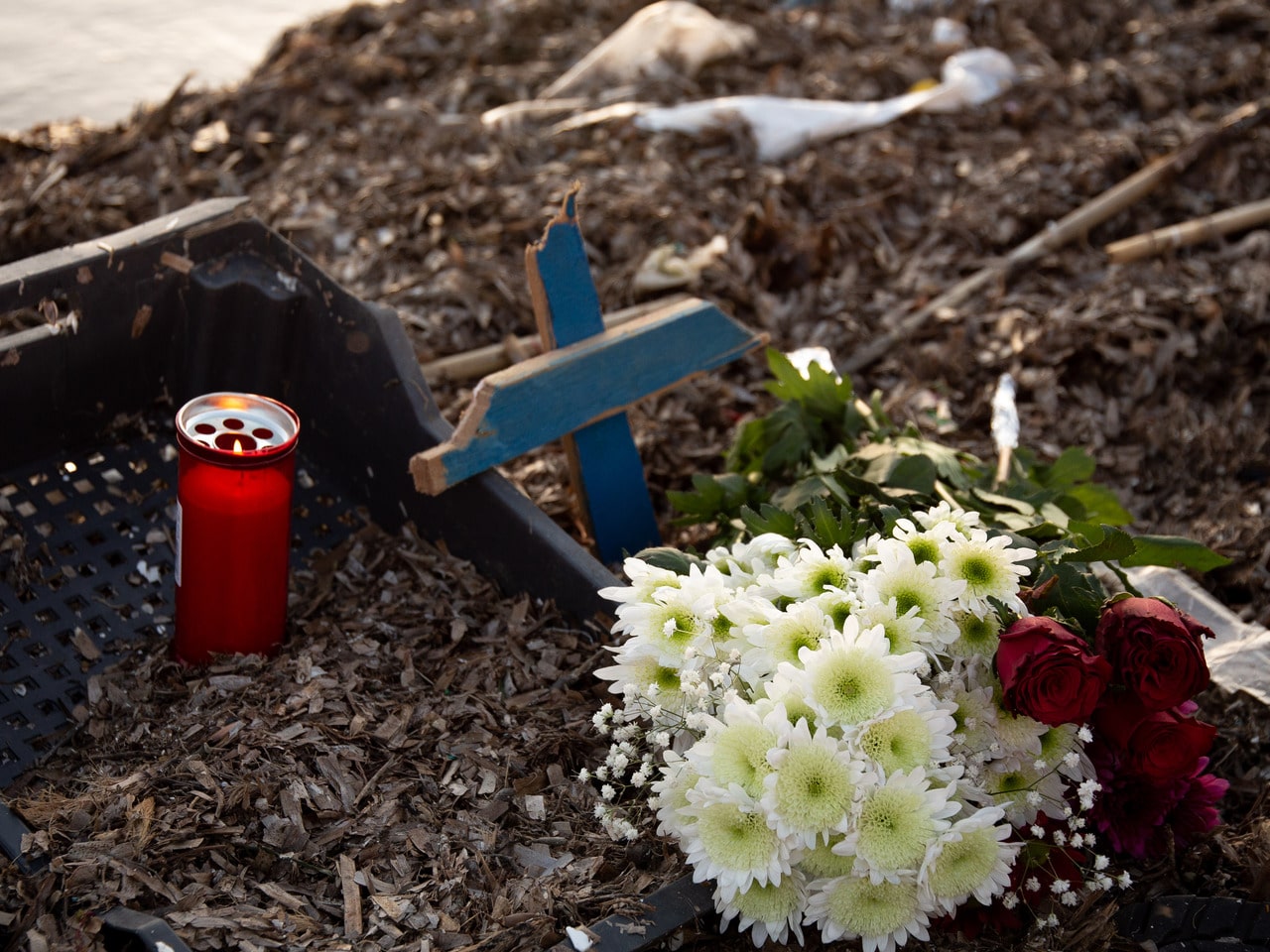
This year there have already been 441 confirmed deaths in the central Mediterranean – the most since 2017. According to the International Organisation for Migration, most of the deaths can be attributed to delayed rescues or failure to assist by the relevant rescue coordination centres. We could hardly be further away from an EU-funded European sea rescue programme in the Mediterranean – the only way to end the deaths in the Mediterranean.
… And that is why our aerial reconnaissance mission is so fundamentally important! We are often the only civilian eye in an area about twice the size of Bavaria. Much of what we know about shipwrecks, human rights violations or the externalisation of Europe’s external borders we know through our reconnaissance flights. We can also only report on the attack on the Ocean Viking because we have the video recordings thanks to our presence on the ground that day. Therefore: As long as the EU does not fulfil its obligations, as it has done for years, we will continue to coordinate rescues from the air and document human rights violations.





